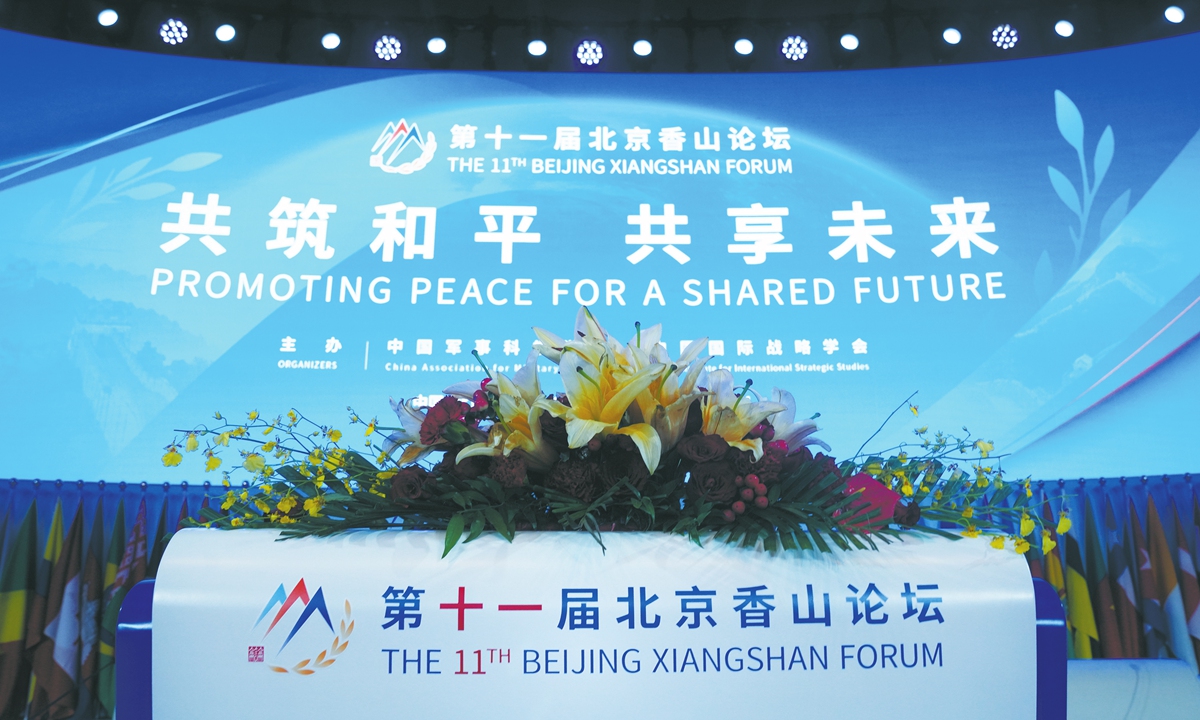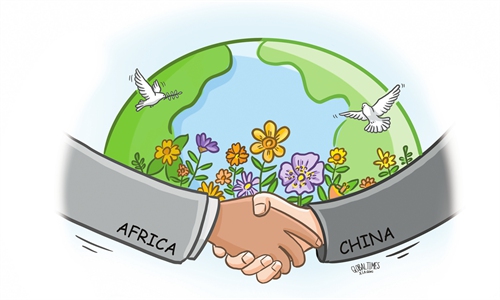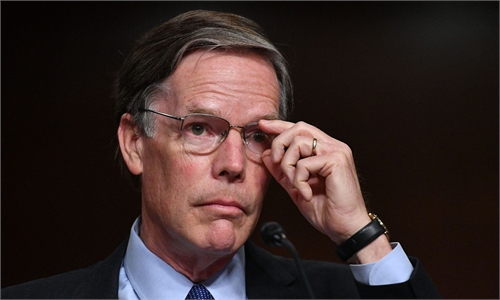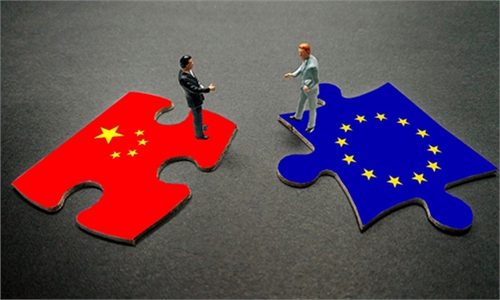China welcomes diverse opinions at BXF, seeks harmony while upholding core interests

The 11th Beijing Xiangshan Forum is held at the Beijing International Convention Center on September 12, 2024. Photo: VCG
Editor's Note:
The 11th Beijing Xiangshan Forum (BXF) is convening in Beijing from Thursday to Saturday. With rising security challenges both in the Asia-Pacific region and globally, what is China's response to these uncertainties? What are China's perspectives on security in its surrounding areas and worldwide? Lieutenant General He Lei (He), former vice president of the Academy of Military Sciences of the People's Liberation Army (PLA), shared his views with the Global Times (GT) reporters Li Aixin and Guo Yuandan.
GT: How shall we understand the theme of the 11th BXF, "promoting peace for a shared future"? And what can people expect from the forum?
He: President Xi Jinping has creatively proposed the concept of building a community with a shared future for mankind, along with the Global Development Initiative, Global Security Initiative and Global Civilization Initiative amid the accelerated evolution of profound global changes. These initiatives not only provide fundamental guidance for China's diplomacy in the new era but also offer a clear direction for development in an increasingly turbulent world. They represent a significant contribution to global peace, development and security, reflecting the strategic wisdom and historical responsibility of a responsible major country.
The theme of this year's BXF, "promoting peace for a shared future," highlights "peace" as humanity's enduring and relentless pursuit. The goal is to achieve a future of lasting peace, universal security, common prosperity, openness, inclusiveness and environmental sustainability through global cooperation. Nearly 1,000 participants will focus on this theme, engaging in in-depth discussions, sharing ideas openly, pooling wisdom, broadening consensus, and building mutual trust to promote the creation of a balanced, effective and sustainable security architecture. All the guests have been warmly welcomed. We encourage all representatives to share their views, whether personal or national, and diverse opinions are welcomed.
Traditional Chinese culture values harmony, advocates finding common ground while reserving differences. However, when it comes to the core interests related to the security of national sovereignty, and territorial integrity, we will not tolerate unfounded criticism or malicious attacks. We will not ignore, compromise or make concessions on these fundamental issues.
GT: The South China Sea affairs appear to be a heatedly discussed topic at the forum. What is your perspective on the escalation of tensions in the South China Sea and the Philippines' repeated instigation of new problems?
He: The Philippines is a close neighbor of China across the sea. The two countries had a history of friendly relations. However, since the current Philippine government took office in June 2022, it has quickly aligned itself with the US. This shift has led to a strengthening of the US-Philippine alliance, the opening of more US military bases in the Philippines, and the agreement to deploy ground-based missile systems there. Tensions have escalated due to frequent provocative actions from the Philippine side at China's islands and reefs. The Philippines has unilaterally torn up the "gentlemen's agreement," or the internal understandings, or the "new model" reached between China and the Philippines on properly managing the situation in the South China Sea.
This kind of behavior - ignoring rational advice, resorting to unscrupulous methods and being inconsistent and stubborn - blatantly infringes upon and provokes China's territorial sovereignty and maritime rights. By unilaterally changing the status quo in the South China Sea, it disrupts established rules and significantly harms peace and stability in the region. Among ASEAN member countries, the Philippines has played a disgraceful role as a "troublemaker."
Some Philippine scholars are participating in this forum, all of whom are welcome. This platform offers an opportunity for in-depth and rational discussions on the current situation in the South China Sea and for a better understanding of China's principled positions.
GT: The Taiwan question is a hot topic. The US has sent its deputy assistant secretary of defense to the forum. What key aspects of the Taiwan question should be discussed more explicitly with the US?
He: There is but one China in the world. The government of the People's Republic of China is the sole legal government representing the whole of China, and Taiwan is an inalienable part of China's territory. This is a fact that cannot be changed by anyone, any organization or any country. China must be reunified, will be reunified, and will inevitably be reunified. This is the common aspiration of all Chinese people, including those in the island of Taiwan. This is a historical trend that no force can stop. The Taiwan question is the core of the core interests of China. The one-China principle is the political foundation and fundamental principle for establishing diplomatic relations with other countries, and it's the foremost red line in US-China relations. The PLA is resolute in its determination, will, capabilities and methods to defend national sovereignty, security, territorial integrity and national reunification.
US arms sales to the island of Taiwan have lasted for a long time, constituting a serious violation of the three China-US joint communiqués and an egregious breach of the important consensus reached by the leaders of the two countries. These actions essentially ignore and undermine the rules of international law. However, regardless of the quantity or type of weapons sold by the US to Taiwan, they will not prevent China's reunification, nor can they change the inevitable failure and demise of the "Taiwan independence" forces.
GT: Before the US sent its representative to the forum, Zhang Youxia, vice chairman of the Central Military Commission, met with US National Security Advisor Jake Sullivan at the end of August in Beijing. What is the significance of recent communications for military exchanges between China and the US?
He: This meeting is a positive step in implementing the important consensus reached by the heads of state of China and the US. It is also a significant measure in turning the San Francisco Vision into reality. It is a welcomed development.
The discussion between Zhang and Sullivan is crucial for clarifying China's firm principles regarding its core interests. It is also important for enhancing strategic communication between the two militaries, avoiding misjudgments and managing risks. As always, dialogue is preferable to silence, and any discussions are better than having none at all. However, China has always paid close attention to actions as well as words.



